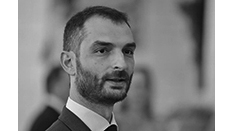Case study: Dr Yiannis Papargyris
Yiannis has completed both the Educational Assessor online course and Chartered Educational Assessor training
 I work as Language Assessment Development Manager for an international awarding organisation. My team and I develop exams which measure candidates’ language ability. I am very passionate about assessment and take every opportunity to learn more about it. The CIEA actively seeks to improve standards in educational assessment, and so I joined their online course in educational assessment. I feel privileged to have been given the opportunity to contribute to this mission.
I work as Language Assessment Development Manager for an international awarding organisation. My team and I develop exams which measure candidates’ language ability. I am very passionate about assessment and take every opportunity to learn more about it. The CIEA actively seeks to improve standards in educational assessment, and so I joined their online course in educational assessment. I feel privileged to have been given the opportunity to contribute to this mission.
The way in which the online course content was organised and delivered really enabled participants to build upon their existing knowledge and exchange views on assessment practices. The course structure and mode of delivery were presented clearly by the tutors so that course participants knew exactly what was expected of them. It worked very well and following this online educational assessor course, I went on to enrol on the Chartered Educational assessor course and have now qualified as a CEA.
The course structure and mode of delivery were presented clearly by the tutors so that course participants knew exactly what was expected of them. It worked very well and following this online educational assessor course, I went on to enrol on the Chartered Educational assessor course and have now qualified as a CEA.
The quality assurance processes built into the training of educational assessors is what the CIEA is all about, in my view. The CIEA aims ‘to provide public assurance that all those engaged in assessment processes have a secure understanding of what is involved in high-quality assessment’, and the body of Chartered Educational Assessors is its way of doing so.
What fascinates me about educational assessment is our ongoing attempt to turn aspects of knowledge into measurable objects. However, not all things can be measured accurately, and consequently many aspects of education inevitably evade the scope of our inquiry. This attempt can be clearly illustrated in the use of statistical data to measure educational outcomes.
I found the CEA face to face training to be particularly engaging. The group of participants comprised different professions and different settings for assessment (awarding organisations, universities, schools, regulatory authorities). Being exposed to different uses of and different views on assessment was an enlightening part of the course. Furthermore, carrying out work on the case study and portfolio enabled me to consolidate and demonstrate knowledge acquired during previous parts of the course. Again, having to combine theoretical principles with real-life obstacles is always a useful challenge.
I would advise all professionals involved in education to invest in assessment literacy. The purpose of assessment is to reflect what has been learnt, so that further learning can be planned and attained. Long-term educational progress cannot be achieved without the use of assessment.
I would advise all professionals involved in education to invest in assessment literacy. The purpose of assessment is to reflect what has been learnt, so that further learning can be planned and attained. Long-term educational progress cannot be achieved without the use of assessment.

